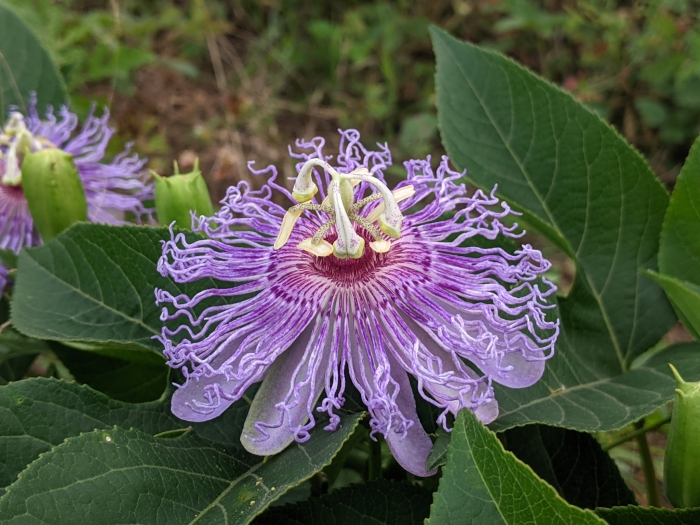Maypop
(Passiflora incarnata)
Maypop (Passiflora incarnata)
/
/

Austin R. Kelly
CC BY 4.0








































































Estimated Native Range
Summary
Maypop is valued for its showy flowers, edible fruit, and ease of maintenance. It is commonly used to cover fences, arbors, and trellises, and can also serve as a ground cover. In cultivation, it requires full sun to partial shade, well-drained soil, and moderate watering, though it is drought-tolerant once established. It can be propagated by seed or cuttings and is suitable for planting in USDA hardiness zones 7–11. While it is a low-maintenance plant, it can spread rapidly and may require pruning to keep it under control. Potential problems include caterpillars of the Gulf Fritillary butterfly, which use the plant as a host, and fungal diseases in humid conditions. Passiflora incarnata is potentially invasive outside its native range, so gardeners should check local regulations before planting.CC BY-SA 4.0
Plant Description
- Plant Type: Vine
- Height: 6-8 feet
- Width: 3-6 feet
- Growth Rate: Rapid
- Flower Color: Purple
- Flowering Season: Summer, Fall
- Leaf Retention: Deciduous
Growth Requirements
- Sun: Full Sun, Part Shade
- Water: Medium
- Drainage: Medium
Common Uses
Bee Garden, Bird Garden, Butterfly Garden, Deer Resistant, Drought Tolerant, Edible*Disclaimer: Easyscape's listed plant edibility is for informational use. Always verify the safety and proper identification of any plant before consumption., Fragrant, Groundcover, Hummingbird Garden, Showy Flowers, Street Planting
Natural Habitat
Native to open woodlands, fields, and grassy roadside areas in the Southeastern and South Central USA
Other Names
Common Names: Maypop , True Passionflower , Wild Apricot , Wild Passion Vine
Scientific Names: Passiflora incarnata , Passiflora incarnata f. alba , Granadilla incarnata , Passiflora edulis var. kerii , Passiflora incarnata var. integriloba , Passiflora kerii , Passiflora rigidula
GBIF Accepted Name: Passiflora incarnata L.